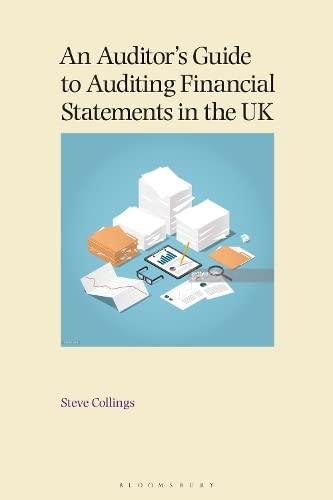Question
Interpreting the Accounts receivable Footnote Hewlett-Packard Company (HPQ) reports the following in its 2010 10-K report. October 31 (in millions) 2010 2009 Accounts receivable, net
Interpreting the Accounts receivable Footnote Hewlett-Packard Company (HPQ) reports the following in its 2010 10-K report.
| October 31 (in millions) | 2010 | 2009 |
|---|---|---|
| Accounts receivable, net | $18,481 | $16,537 |
HPQ footnotes to its 10-K provide the following additional information relating to its allowance for doubtful accounts.
| For the fiscal years ended October 31 (in millions) | 2010 | 2009 | 2008 |
|---|---|---|---|
| Allowance for doubtful accounts-accounts receivable | |||
| Balance, beginning of period | $ 629 | $ 553 | $ 226 |
| Increase in allowance from acquisition | 7 | -- | 245 |
| Addition of bad debts provision | 80 | 282 | 226 |
| Deductions, net of recoveries | (191) | (206) | (144) |
| Balance, end of period | $ 525 | $ 629 | $ 553 |
(a) What is the gross amount of accounts receivables for HPQ in fiscal 2010 and 2009?
| ($ millions) | 2010 | 2009 |
|---|---|---|
| Gross accounts receivable | Answer | Answer |
(b)What is the percentage of the allowance for doubtful accounts to gross accounts receivable for 2010 and 2009? (Round your answers to two decimal places.)
| ($ millions) | 2010 | 2009 |
|---|---|---|
| Percentage of uncollectible accounts to gross accounts receivable | Answer% | Answer% |
(c)What amount of bad debts expense did HPQ report each year 2008 through 2010? What amount was actually written off?
| ($ millions) | 2010 | 2009 | 2008 |
|---|---|---|---|
| Bad debt expense | $Answer | $Answer | $Answer |
| Amount actually written off | $Answer | $Answer | $Answer |
Which of the following statements describes how bad debts expense compares with the amounts of its accounts receivable actually written off?
Generally, HP has overestimated its accruals, which has inflated profit by the over-accrual of bad debts.
Generally, HP has underestimated its accruals, which has inflated profit by the under-accrual of bad debts.
The difference between bad debt expense and write-off during the three years is small, so it appears they are accurately accruing for anticipated credit losses.
The difference between bad debt expense and write-off during the three years has inflated HPQ's cash flows reported.
(d)Compute HPQ's write-offs as a percentage of the allowance account at the beginning of the year (Round your answers to two decimal places). 2010 write-offs as a percentage of beginning of year allowance: Answer% 2009 write-offs as a percentage of beginning of year allowance: Answer% What inferences can we draw as a result of changes in the allowance for doubtful accounts from 2009 to 2010?
The allowance for uncollectible accounts has decreased as a percentage of gross accounts receivable in 2010. We can , therefore, expect write-offs to increase.
The allowance for uncollectible accounts has decreased as a percentage of gross accounts receivable in 2010. This means that HPQ is over-stating its bad debt expense in the current year.
HPQ's write-offs as a percentage of the allowance decreased from 2009-2010. The reduction in write-off is reflected in their income statement as a corresponding reduction of bad debt expense and an increase in profit.
HPQ's write-offs as a percentage of the allowance decreased from 2009-2010. By this measure it appears that HPQ is accurately accruing for anticipated credit losses.
Step by Step Solution
There are 3 Steps involved in it
Step: 1

Get Instant Access to Expert-Tailored Solutions
See step-by-step solutions with expert insights and AI powered tools for academic success
Step: 2

Step: 3

Ace Your Homework with AI
Get the answers you need in no time with our AI-driven, step-by-step assistance
Get Started


